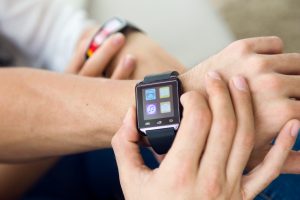Parkinson’s is a neurodegenerative disease that affects the nervous system and can cause a range of symptoms, including tremors, muscle stiffness, difficulty moving, and balance problems. Early diagnosis of Parkinson’s disease is critical for effective treatment and better management of symptoms. Recently, a promising possibility of using smartwatches as a tool for early detection of early signs of this disease has emerged.
Smartwatches, such as the Apple Watch or Android Wear-based devices, have become increasingly popular in recent years due to their ability to monitor various vital functions such as heart rate, physical activity level, and sleep. However, new research has shown that these devices can also detect early signs of Parkinson’s long before the official diagnosis.
The study conducted by researchers at the University of Oxford analyzed data from thousands of participants who wore smartwatches for an extended period of time. Using machine learning algorithms, the researchers identified patterns and signals that may indicate the development of Parkinson’s. In particular, changes in walking speed, step duration and movement coordination were detected by the smartwatch sensors with surprising accuracy.

This means that smartwatches could potentially detect early signs of Parkinson’s up to 7 years before clinical diagnosis. This is significant progress, considering that Parkinson’s diagnosis often occurs when symptoms are already evident and neurological damage is already underway.
Using smartwatches as a monitoring tool for early detection of Parkinson’s could lead to numerous benefits. First, it could enable doctors to diagnose the disease at an earlier stage, allowing early treatment to slow disease progression. In addition, it could enable patients to monitor their symptoms and adjust treatment according to individual needs.
However, there are also some challenges to be faced. For example, increasingly sophisticated machine learning algorithms need to be developed to ensure greater accuracy in detecting early signs of Parkinson’s. In addition, it is important to consider data privacy, as using smartwatches to monitor health involves the collection and processing of sensitive personal information.
In conclusion, the use of smartwatches to detect early signs of Parkinson’s is a promising field of research that could revolutionize the diagnosis and treatment of this neurodegenerative disease. With proper attention to these aspects, smartwatches could become valuable tools in the fight against Parkinson’s and improve patients’ quality of life. With further study and technological developments, we could arrive at a more accurate early diagnosis, enabling early intervention and better control of symptoms. However, it is also important to consider the ethical and data privacy implications when using monitoring devices. With proper attention to these aspects, smartwatches could become valuable tools in the fight against Parkinson’s and improve patients’ quality of life.








